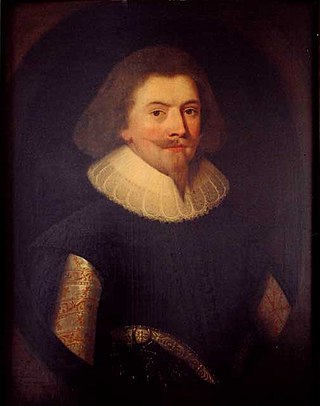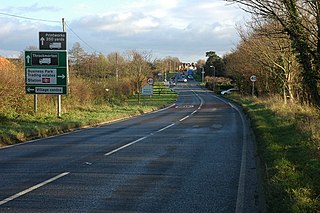
Duke of Devonshire is a title in the Peerage of England held by members of the Cavendish family. This branch of the Cavendish family has been one of the wealthiest British aristocratic families since the 16th century and has been rivalled in political influence perhaps only by the marquesses of Salisbury and the earls of Derby.

Francis Lovell, 9th Baron Lovell, 6th Baron Holand, later 1st Viscount Lovell, KG was an English nobleman who was an ally of King Richard III during the War of the Roses. Sir William Catesby, Sir Richard Ratcliffe and he were among Richard's closest supporters, famously called "the Cat, the Rat and Lovell our dog" in an anti-Ricardian squib. In addition to being an ally, Lovell is described as Richard's best friend.

Sir Fitzroy Edward Kelly was an English commercial lawyer, Tory politician and judge. He was the last Chief Baron of the Exchequer.

Peter Wynford Innes Rees, Baron Rees, was a British Conservative politician and barrister. He was Member of Parliament (MP) for Dover and Deal from 1974 to 1983 and MP for Dover from 1970 to 1974 and 1983 to 1987. He was Chief Secretary to the Treasury from 1983 until 1985. He was created a life peer as Baron Rees, of Goytre, in 1987.

The Barons of the Exchequer, or barones scaccarii, were the judges of the English court known as the Exchequer of Pleas. The Barons consisted of a Chief Baron of the Exchequer and several puisne (inferior) barons. When Robert Shute was appointed second baron in June 1579 the patent declared "he shall be reputed and be of the same order, rank, estimation, dignity and pre-eminence to all intents and purposes as any puisne judge of either of the two other courts." The rise of commercial trade in Elizabethan England occasioned fraudulent application of the Quo minus writ. More taxation demanded staff at the exchequer to sift an increase in the case load causing more widespread litigation cases to come to the court. From the 1580s onwards the Barons of Exchequer were no longer held in such low regard, and more likely to be Serjeants-at-law before qualification. The Inns of Courts began to exclude solicitors, and held posts for judges and barons open equally to barristers. In 1591, Regulations reflected a case in which the Lord Keeper Egerton banned solicitors from seeking cases in the Exchequer.
Sir John Say was an English courtier, MP and Speaker of the House of Commons.

Rowland FitzEustace, 1st Baron Portlester was an Irish peer, statesman and judge. He was one of the dominant political figures in late fifteenth-century Ireland, rivalled in influence probably only by his son-in-law Garret FitzGerald, the "Great" Earl of Kildare.
Richard FitzNeal was a churchman and bureaucrat in the service of Henry II of England.
James Butler, 3rd Earl of Ormond, was a noble in the Peerage of Ireland. He acceded to the title in 1382, and built Gowran Castle three years later in 1385 close to the centre of Gowran, making it his usual residence, whence his common epithet, The Earl of Gowran.

John Egerton, 1st Earl of Bridgewater, KB, PC, was an English peer and politician from the Egerton family.

Edward North, 1st Baron North was an English peer and politician. He was the Clerk of the Parliaments 1531–1540 and Lord Lieutenant of Cambridgeshire 1557–1564. A successful lawyer, he was created the first Baron North, giving him a seat in the House of Lords.
Robert St Lawrence, 3rd Baron Howth was a leading nobleman and statesman in 15th-century Ireland who held the office of Lord Chancellor of Ireland. Through his second marriage, he was a close connection to the new Tudor dynasty, to which his son was staunchly loyal.
Henry Draycott was an English-born Crown official and judge in sixteenth-century Ireland, who held a number of senior Government offices, including Chancellor of the Exchequer of Ireland. Despite his apparent lack of legal qualifications, he also had a successful career as a judge, becoming a Baron of the Court of Exchequer (Ireland) and Master of the Rolls in Ireland. He became a substantial landowner in the Pale, with his principal estate at Mornington, County Meath.
Walter de Islip, Isleep or de Istlep was an English-born cleric, statesman, and judge in fourteenth-century Ireland. He was the first Chief Baron of the Irish Exchequer; he also held the offices of Treasurer of Ireland, Chief Escheator, and Custos Rotulorum of Kilkenny. He was a noted pluralist, who held numerous benefices. His career was seriously damaged by accusations of corruption and maladministration. He played an important role in the celebrated Kilkenny Witchcraft Trials of 1324.
Thomas de Montpellier, or de Monte Pessulano was a fourteenth-century Anglo-French judge and Crown official, much of whose career was spent in Ireland. He held a number of important lay and clerical offices including Dean of St. Patrick's Cathedral, Chancellor of the Exchequer of Ireland and, briefly, Chief Baron of the Irish Exchequer.
Nicholas de Balscote was an English-born official and judge in fourteenth-century Ireland. He attained high judicial office, but his career was damaged by a quarrel with King Edward II.

William Willoughby, 5th Baron Willoughby de Eresby KG was an English baron.

William Neville of Penwyn and Wyke Sapie, Worcestershire, was the son of Richard Neville, 2nd Baron Latimer, and the author of The Castell of Pleasure. In 1532 he was accused of treason and dabbling in magic.
Michael Gryffin or Gryffen was an English-born judge in Ireland. He spent many years attempting to exercise his right to hold the office of Chief Baron of the Irish Exchequer, which was also claimed by his Irish-born rival, John Cornwalsh.










